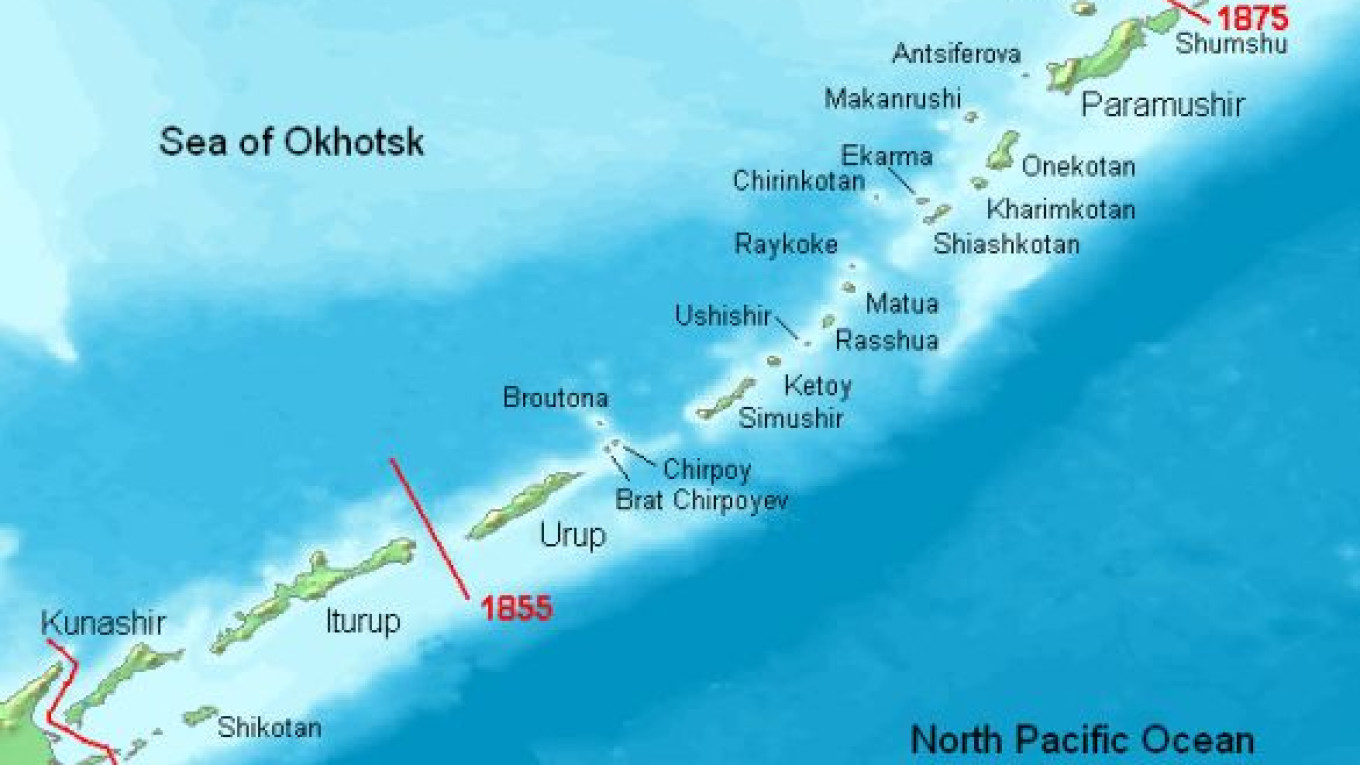During a visit to the Far East, Prime Minister Dmitry Medvedev traveled Tuesday to Kunashir island, inflaming a long-standing territorial dispute with Japan over the Kuril Islands.
Medvedev took an unflinching tone before the visit, saying that "the practice of visiting the islands by the Russian leadership will continue," RIA-Novosti reported.
The islands, surrounded by? rich fishing grounds believed to? have oil, natural gas and? mineral deposits, were seized by? Soviet troops in? the closing days of? World War II, but Japan says they are part of? its territory.
"I would like to emphasize that I consider it very important that members of the government visit the Kurils. … This is an important part of the Sakhalin region and simply an important part of our Russian lands," Medvedev said.
It has been earlier reported that the prime minister's planned trip to the Kuril Islands would be postponed due to weather conditions, but conditions improved enough to allow the government delegation to fly to the island.
"Life in Sakhalin is such that it changes very quickly. And it's a lesson for a lot of people who are here with me today because I just said that we would not go, but now we have the opportunity to visit the Kurils. I think this is a very important part of our program," Medvedev said.
Medvedev's visit to far eastern regions will last until Thursday.
In November 2010 Dmitry Medvedev became the first Russian president to visit the islands, causing a strong outcry from the Japanese government.
Japan has claimed four disputed islands since 1945, citing a bilateral agreement on trade and borders from 1855. Tokyo has made the return of the islands a condition of concluding a peace treaty with Russia, which was not signed at the end of World War II, meaning the two countries are technically still at war.
Moscow has argued that the southern Kuril Islands were a part of the Soviet Union following World War II and that having the appropriate international legal registration, Russian sovereignty over them is undoubted.
A Message from The Moscow Times:
Dear readers,
We are facing unprecedented challenges. Russia's Prosecutor General's Office has designated The Moscow Times as an "undesirable" organization, criminalizing our work and putting our staff at risk of prosecution. This follows our earlier unjust labeling as a "foreign agent."
These actions are direct attempts to silence independent journalism in Russia. The authorities claim our work "discredits the decisions of the Russian leadership." We see things differently: we strive to provide accurate, unbiased reporting on Russia.
We, the journalists of The Moscow Times, refuse to be silenced. But to continue our work, we need your help.
Your support, no matter how small, makes a world of difference. If you can, please support us monthly starting from just $2. It's quick to set up, and every contribution makes a significant impact.
By supporting The Moscow Times, you're defending open, independent journalism in the face of repression. Thank you for standing with us.
Remind me later.



